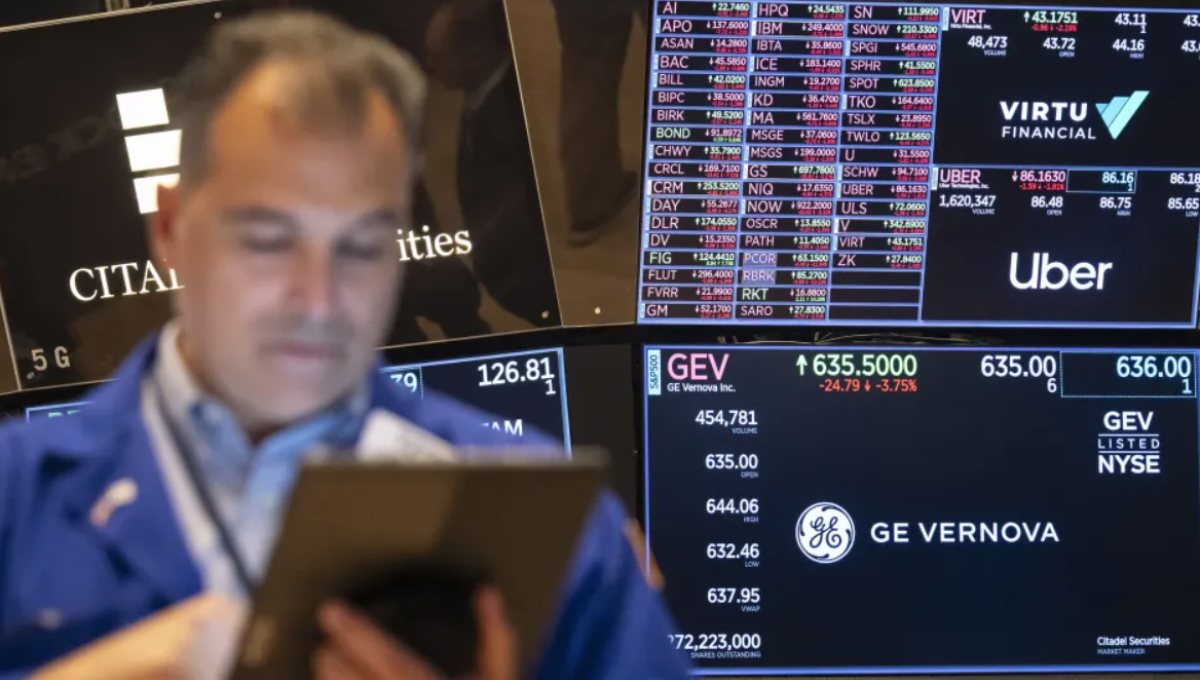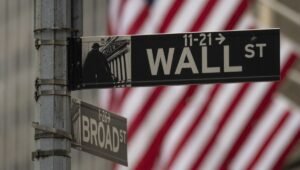U.S. stocks were on the rise Friday afternoon, setting the stage for Wall Street to secure its third weekly gain out of the last four. The S&P 500 advanced by 0.7%, staying near record highs, poised to recover from the dip seen last week.
As of 1:24 p.m. Eastern, the Dow Jones Industrial Average was up 223 points (0.5%), while the Nasdaq added 0.8%, building on its all-time high set the previous day.
Tech giants played a major role in driving the market forward. Nvidia climbed 0.6%, and Apple surged 4.3%.
Gilead Sciences saw a standout gain of 9% after reporting quarterly results that beat expectations and raising its outlook for the year. Expedia Group also impressed investors with solid earnings, lifting its shares 2.7%.
These companies are among the last wave in the S&P 500 to post generally strong second-quarter earnings. However, concerns remain, as several businesses have cautioned that current tariffs may cut into their profits.
Investors have closely monitored the ongoing U.S. trade tensions and the Federal Reserve’s stance on interest rates. On Thursday, President Donald Trump imposed new tariffs on imports from multiple countries, adding more uncertainty about the direction of the economy.
This unpredictability surrounding trade policies is a key reason why the Federal Reserve opted to keep interest rates steady. Although Fed Chair Jerome Powell has faced mounting pressure from Trump to cut rates, policy decisions are made collectively by the 12-member Federal Open Market Committee.
Trump may soon gain more influence over the Fed after nominating Stephen Miran, a close economic adviser, to an open seat on the Fed’s board. Miran is expected to support lower interest rates, aligning with Trump’s preferences.
In the Fed’s most recent policy meeting, two members had already voted in favor of a rate cut. Wall Street now widely anticipates a 0.25% rate cut at the central bank’s next meeting in September.
Treasury yields edged higher. The 10-year Treasury yield rose to 4.28% from 4.25% the day before, while the 2-year yield, often a reflection of rate expectations, ticked up to 3.75% from 3.73%.
Rate cut hopes have been driven by several signs of a potential economic slowdown. Reports last week revealed a slight uptick in inflation during June, while job growth in July cooled, raising concerns about the labor market.
These factors weigh heavily on the Fed, which seeks to balance inflation control with full employment. Lower rates can stimulate economic activity and lift asset prices but also risk pushing inflation higher. At the moment, investor concern appears more focused on slowing employment than inflation.
Next week could offer more clarity, with key data releases expected on consumer and wholesale inflation, as well as retail sales.
“We believe stocks will remain supported by strong fundamentals,” said Ulrike Hoffmann-Burchardi, CIO for the Americas and global head of equities at UBS Global Wealth Management, “but fresh developments next week could test investor sentiment that’s still sensitive to tariff, economic, and geopolitical news.”
In Asia, most stock markets ended lower, with Tokyo’s Nikkei bucking the trend by rising 1.9% following news that the U.S. would adjust certain tariffs affecting Japanese exports.
European markets closed with mixed results.
Also Read:
Wall Street Rebounds as U.S. Stocks Regain Most of Friday’s Losses
Trump’s Resignation Demand for Intel CEO Triggers Stock Slide














